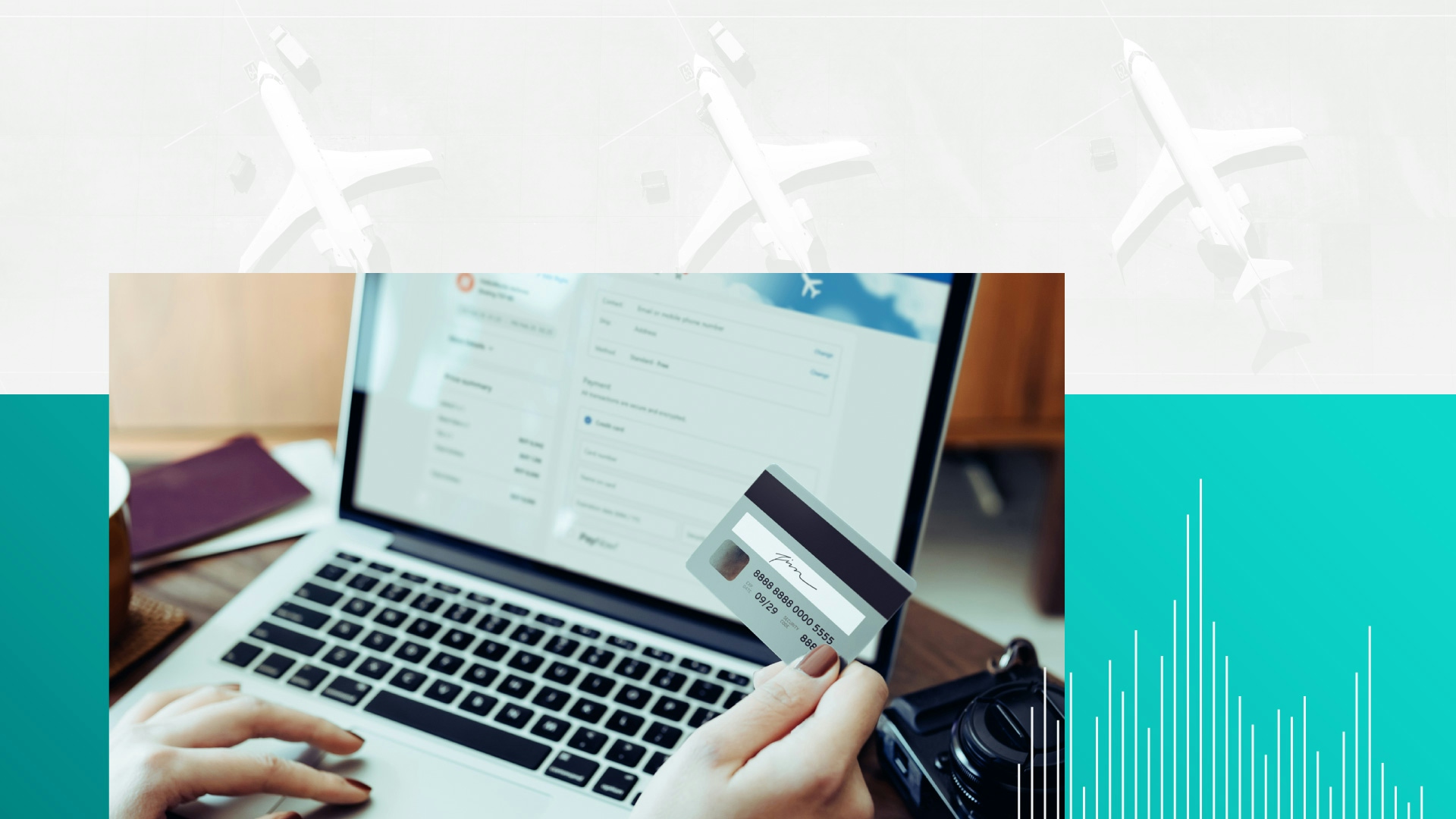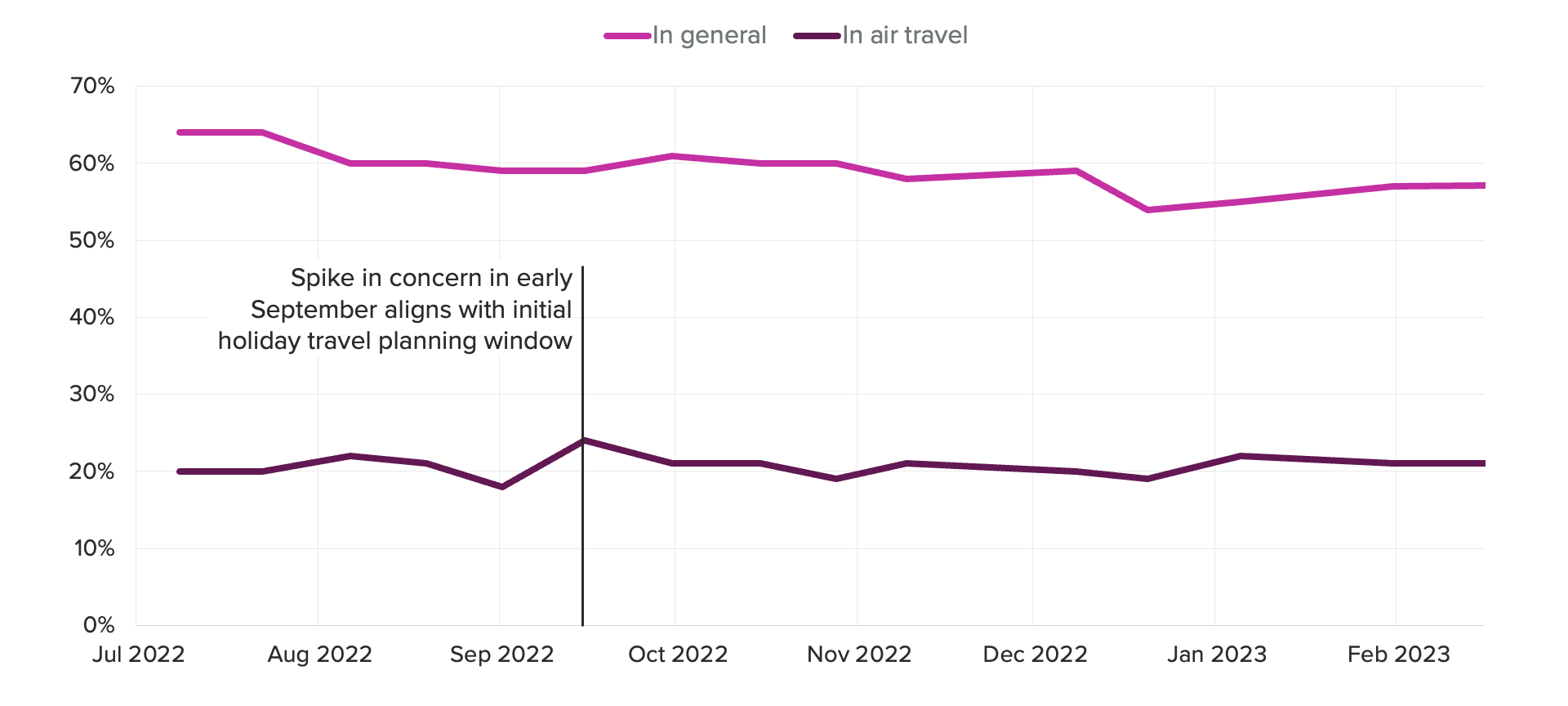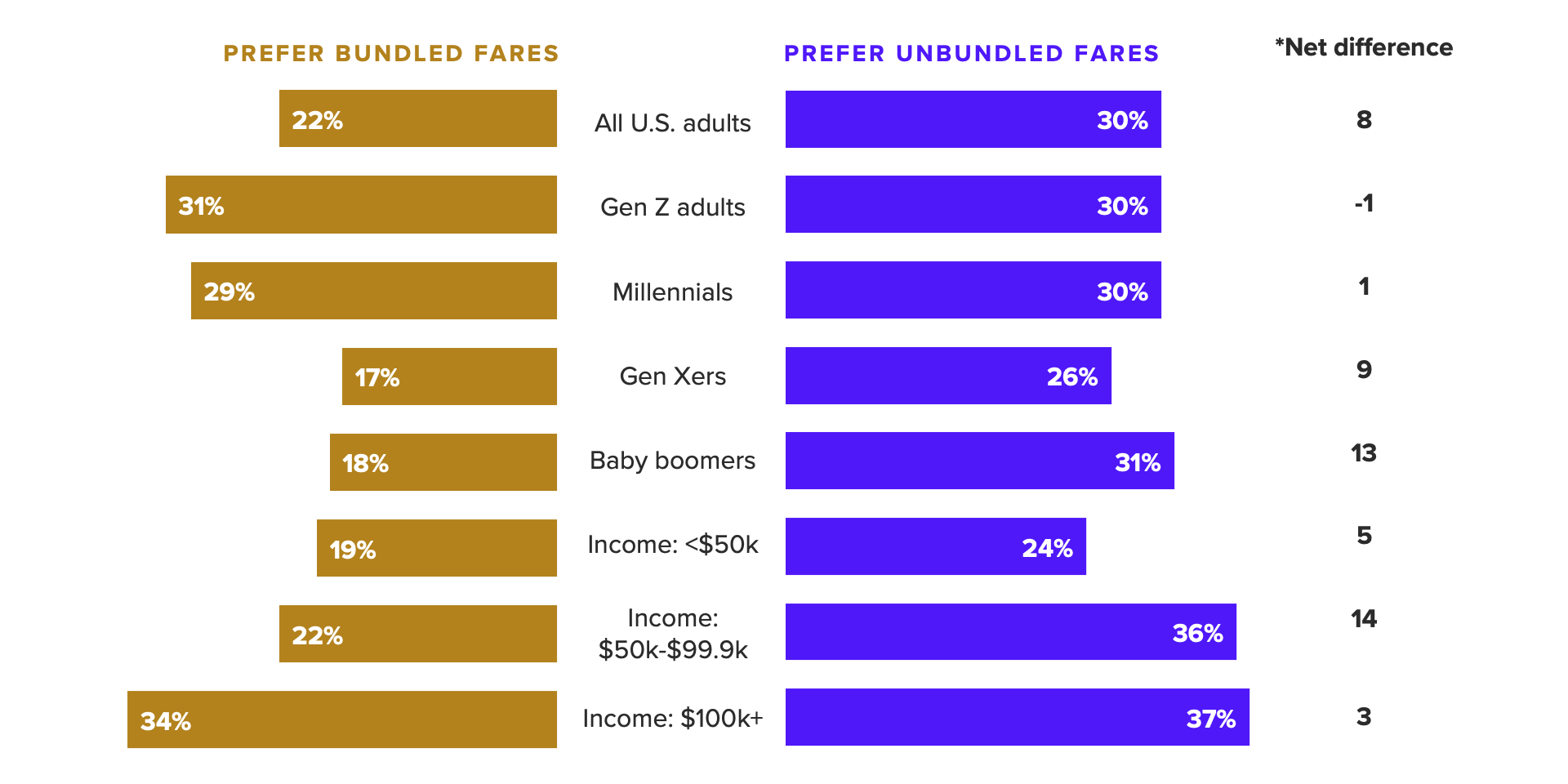Despite Grumbling About Airline Junk Fees, More Consumers Prefer Unbundled Fares

Key Takeaways
The share of U.S. adults who said they are “very concerned” about inflation generally has fallen 7 percentage points since July, but concern about inflation in air travel was relatively unchanged.
Travelers view unbundled fares as a viable way of saving money on airfare without having to forgo travel plans, but appetite varies by demographic.
Airlines should provide clear and precise options for consumers during the earliest stages of booking to avoid surprise and frustration at unexpected fees.
President Joe Biden recently took airlines to task in his State of the Union address, alleging that they treat kids “like pieces of luggage.” What he was referring to was the common practice of charging families a fee to book seats together, also known as a “junk fee.” Given the public support for eliminating junk fees, it’s easy to assume that when it comes to airfare, most travelers prefer an all-inclusive price over paying a base rate with the option to add extra amenities, otherwise known as “unbundling.” But in reality, price continues to weigh heavily on consumers’ minds, and they see unbundled airfares as a way to help cut costs by paying only for what they need.
Concerns about the cost of airfare are impacting traveler behavior
For consumers, fears about inflation overall have receded in the past months, but the same isn’t true for concerns about inflation in air travel. These worries have remained consistent since we began tracking in July. But the movement over time shows there’s more to the story: The most notable spike in concern aligns closely with the time period when many consumers start planning holiday travel, suggesting that consumer concern about inflation’s impact on airfare is latent when they’re not thinking about booking, but strong when they’re planning a trip. And with good reason — airfare is 26% higher now than it was at the same time last year.

Despite frustration with the price of airfare, people really don’t want to cancel their trips, especially after three years of disrupted travel plans due to the pandemic. Rather, they’ll work to search for less expensive options that allow them to fit a trip in their budget. Across all major demographic groups, U.S. adults were more likely to have searched for cheaper travel options in the past month than to have rescheduled or canceled their trips.
Travelers see unbundled fares as a viable way to save money
The idea of unbundling in airfare is nothing new. The trend is generally regarded to have started in the late 2000s, when major carriers began charging for checked baggage — a practice that has largely been accepted as standard nowadays. For airlines, the shift resulted in a significant new revenue stream: Baggage fee revenues increased from $464 million in 2007 to $3.4 billion in 2010.
While some level of unbundling seems to be table stakes, awareness of the practice is not high. Among those who have traveled in the past three months, less than a quarter said they’d noticed unbundling in airfare. But, in an encouraging sign for airlines that count on the extra fees for revenue, travelers are open to the practice if it helps them cut costs. Overall, U.S. adults were 8 points more likely to say they prefer unbundled fares as a way to save money than to say they’d rather have an all-in price at the outset.

*Net difference refers to the share of respondents who prefer unbundled fares minus the share who prefer bundled fares.
There is some variation in interest though, and it comes from some unexpected sources. While it may be assumed that younger travelers with less disposable income may be more likely to opt for a cheaper, unbundled fare, Gen Z’s appetite for an all-in option actually exceeds interest in a stripped-down base fare. Instead, it’s baby boomers who show outsize interest in unbundling — they’re 13 points more likely to prefer that to a bundled option.
And while those in the highest-income households are most likely to prefer unbundling, they’re also most likely to prefer a bundled fare, simply because they tend to be more frequent travelers and are therefore more likely to have an opinion on the matter (middle-income and lower-income consumers were more likely to say they don’t know or have no opinion). That said, there is a strong interest among middle-income travelers for unbundled fares — they are 14 points more likely to prefer the basic option over the all-inclusive choice.
Preference for unbundled fares persists as people make 2023 plans
Openness to unbundling is not only prevalent across demographic groups — it’s also remaining popular as travelers begin to plan trips for the coming year. And it’s likely that, as economic concerns persist, people will continue to look for ways to save money without having to give up on travel, signaling a potential rise in propensity for selecting an unbundled airfare.
In the end, it doesn’t seem as though unbundling in itself is a deterrent for travelers. Rather, it’s the lack of clarity regarding what is included in each fare at the outset. When people moan about “junk fees,” it’s often because they believe they are paying one price and then are presented with a different, higher price during checkout. Airlines can solve for this issue by emphasizing clarity and transparency early in the booking process, so travelers understand what is (and isn’t) included in their fare and how much they may need to shell out for desired add-ons. This will result in a win-win — travelers who feel in control of their spend, and airlines that can continue to capitalize on ancillary revenue.
Lindsey Roeschke is an analyst whose work focuses on behavior and expectations of consumers in the travel & hospitality and food & beverage categories, particularly through a generational and cultural lens. Prior to joining Morning Consult, she served as a director of consumer and culture analysis at Gartner. In addition to her research and advisory background, Lindsey has more than a decade of experience in the advertising world. She has lived and worked in seven cities across four continents.